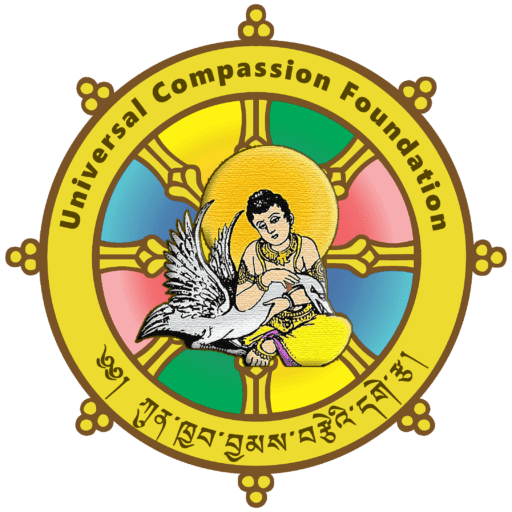
- This event has passed.
Chotrul Duchen Monlam Chenmo – Great Prayer Festival of Miracles- Tibetan Butter Lantern Festival 2023
February 21, 2023 @ 12:00 am – March 7, 2023 @ 11:59 pm
CHOTRUL MONLAM CHENMO
Great Prayer Festival of Miracles
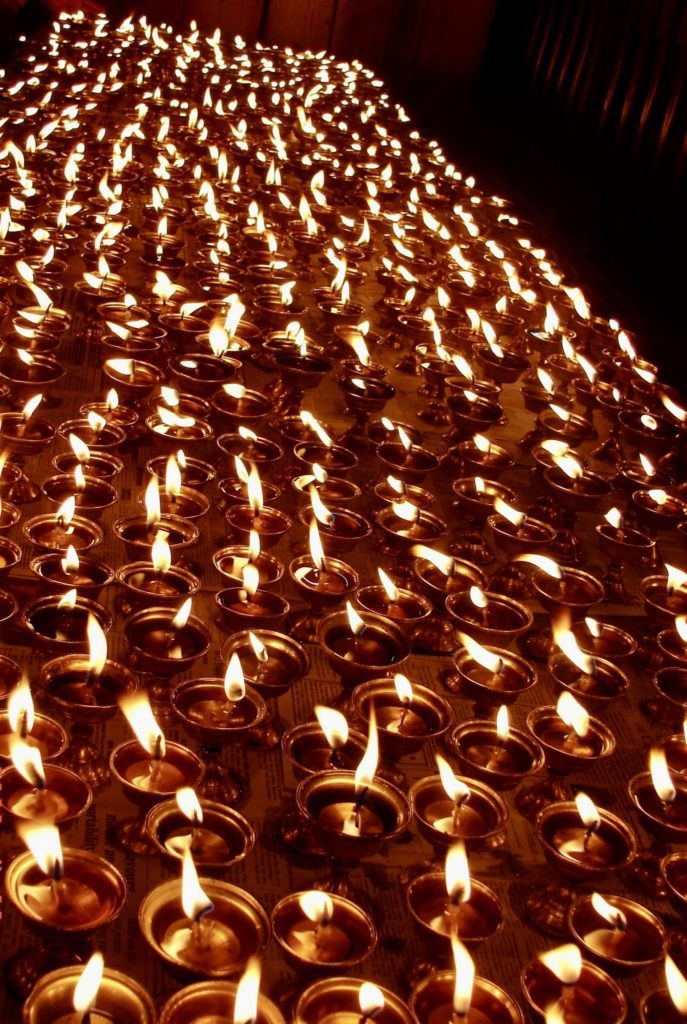
–Tibetan Butter Lantern Festival–
February 21st-March 07th, 2023
MONLAM CHENMO– The Great Prayer Festival is the anniversary commemorating those 15 days of Buddha Shakya Muni performing various miracles in response to the continued call for computation of power by the six jealous ascetic masters. Buddha performed astonishing miracles, thoroughly defeating the rival ascetics, resulting in all converting to the Buddhist path.
The TWO WEEK-LONG prayer festival in Tibet was held beginning on the Tibetan lunar New Year, February 21 st in 2023 with the final day, known as Chongna Choepa-Tibetan for “The offering festival of the 15th” being celebrated on March 7th in 2023.
You can read a detailed translation of each of the Fifteen Days of Miracles complied by Venerable Geshe-la Phelgye below.
MONLAM CHENMO:
A brief history
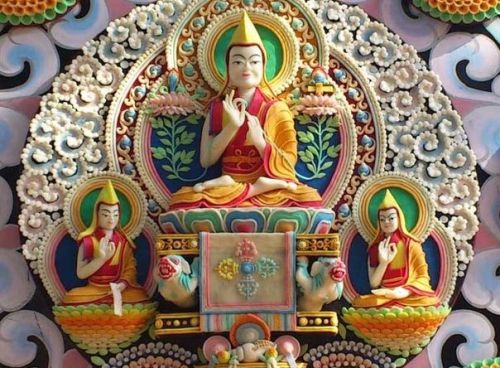
This Great Prayer Festival was established in Tibet in 1409 by Lama Rinpoche Je Tsongkhapa to commemorate the said momentous event at Shravasti, ancient India. According to the Sutra of the Wise and Foolish, six jealous ascetic masters, representing the six great schools of eternal believers, challenged Shakyamuni Buddha in a competition of miraculous powers betting whoever loses will follow the rightful winner.
Typically, the Buddha purposely avoided displays of powers because people are easily distracted by mundane powers instead of practicing true Dharma. However, he understood they wouldn’t be subdued using his clairvoyance unless he accepted the challenge and performed some miracles, so he outdid them for 15 days. The six masters were converted to the Buddhist path.
The primary purpose of the Monlam Great Prayer Festival is to pray for the long life of all the holy Gurus of all Buddhist traditions, for the preservation and prevailing of the Buddha-Dharma in the minds of all sentient beings, and for world peace.
DAY OF MIRACLES:
HOW TO PRACTICE
The Day of Miracles is an auspicious day for prayer and practice, as the karmic results of virtuous actions are multiplied exponentially. Followers are encouraged to devote special time to engage in virtuous deeds and heartfelt practices, to rejoice in the virtues of oneself and others, and dedicate the merit to the benefit and eventual enlightenment of all sentient beings.
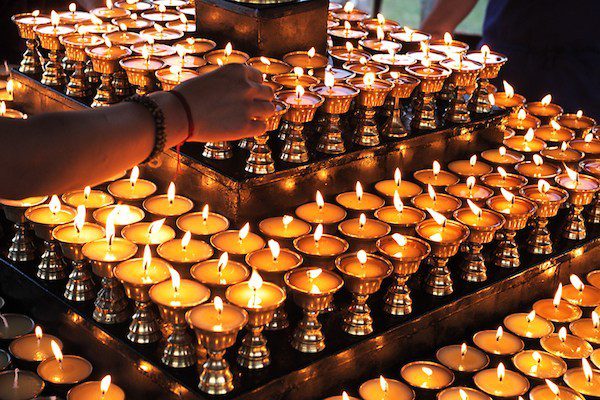
Since these anniversaries are based on the Tibetan lunar calendar, they fall on different days every year according to our western calendar. These 15 days are merit-multiplying, particularly on the full moon day in which any virtue created is magnified millions of times. The full moon day in 2023 falls on March 7th.
You can read a detailed translation of each of the Fifteen Days of Miracles complied by Venerable Geshe-la Phelgye below.
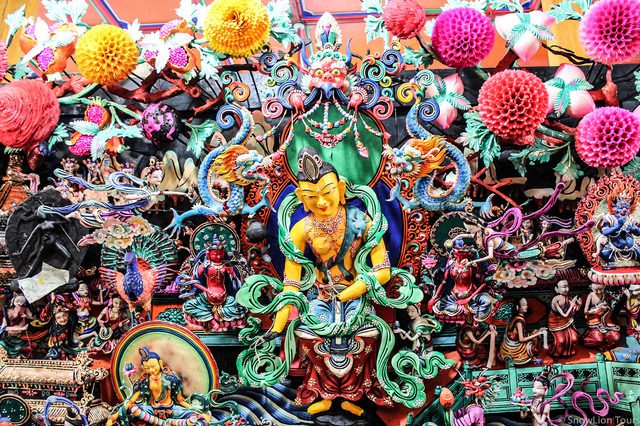
THE MIRACULOUS DEEDS OF BUDDHA SHAKYAMUNI AT SHRAVASTI
translated and compiled by: Venerable Geshe Thupten Phelgye
At one time, Buddha was staying with hundreds of fully ordained monks in the Bamboo Grove outside of Rajagirha. The ruler of that country, King Bimbisara, was one of Buddha’s most significant patrons. In loyalty and respect for Buddha and his monks, the King led many of his subjects to practice the teaching. Six heretical teachers were also staying there at that time, and their deceptive teachings were the cause of many non-virtuous actions. King Bimbisara’s younger brother followed these teachers and made great offerings to them, thinking that they taught the path to liberation. As a result, he became defiled by error, so even though Buddha showed the glories of enlightenment, he did not see it. King Bimbisara persuaded his brother to give up his erroneous ideas, but his brother replied, “I have my own masters. Why should I listen to Buddha?”
Nevertheless, feeling that he should respect King Bimbisara’s feelings, the brother decided to give a feast to the public, food, and gifts to all who came. The six masters came and sat in the highest seats. When Buddha and his disciples arrived, they walked toward the few remaining seats, but the six masters found themselves getting up from the highest seats before even reaching them. However, they tried three times to remain seated in higher positions, only with each attempt finding themselves sitting in the lower. Finally, feeling ashamed, they stayed there.
As per tradition, before the food was served, water was brought to the guests so that they could wash their hands. As Buddha’s seat turned into the highest, his host offered the water to him first, but Buddha said, “Offer it first to your masters.” The water was then offered to them, but nothing flowed into their hands when the vessel was tipped. The host tried repeatedly, but still, the water would not flow. He then offered it again to Buddha. The water flowed freely to Buddha and, after that, to everyone else.
Before they ate, the host asked Buddha to bless the food. He deferred again to the six masters, saying, “Request the blessing from your own masters.” But when the six masters tried to pray, they could not utter a word and gestured that Buddha should say the blessing. Buddha did so with a clear, beautiful voice, and the food was offered first to him, but he said once more, “Offer it first to your masters.” The food was then offered to them, but everything they tried to take flew into the air. Once Buddha took his food, everything came down into their hands.
After the meal, the host made the customary request to Buddha for teaching. Buddha again deferred to the six, saying, “Have your masters speak of their doctrines.” Once again, the six masters unable to speak a word could only motion for Buddha to speak. Buddha said words so that each listener heard what fitted their own needs—resulting in everyone being blessed with joy. Even King Bimbisara enhanced his wisdom from high to higher.
Furthermore, many attained the first to the third stages of liberation; others expanded their Bodhi-chitta, and some achieved the supreme Bodhichitta. Many people reached the stage of non-returning, and others, earning what they prayed for, developed great faith in the Three Jewels. From then on, the remaining public followed the Buddha.
The six masters went away, angry at having lost their followers. They prayed to their deities to help curtail the Buddha’s activities. The deities manifested as the six masters and went to the marketplace to perform various miraculous deeds – shooting water, flames, and lights of many colors from their bodies. Many people at the market marveled at these deeds and worshiped them.
They proclaimed, “Through the wickedness of Gautama, we have fallen into misfortune. All the kings, Brahmins, and great patrons who used to worship us and bring us offerings now no longer respect us. Now, these people are running after Gautama, giving him everything they used to give us. We challenge Gautama—for every one of his miracles, we will do two; People shall see who is more powerful.”
The six masters went to King Bimbisara and asked him to deliver their challenge to Buddha. The King laughed at their arrogance. “You are foolish. Your miraculous deeds cannot begin to compare to those of Buddha. Your challenge is like the light of a firefly compared with sunlight, as the water in an ox’s hoof print compared with the ocean. It is like the fox challenging the lion.” The six pundits persisted and said, “You will see. What happened before is no indication of what will happen now. When we compete, it will be clear who is the greater.”
King Bimbisara visited Buddha and told him of the challenge, “Those six masters want to compare their miraculous deeds with the Tathagata. Will you please show them your powers to reverse their wrong views and lead them to follow the virtuous path? When you do this, may I be there?” Buddha replied, “The time is known. Prepare a suitable place.” King Bimbisara had his ministers clean and prepared a broad field. There they erected a lion throne and victory banners of the conqueror Buddha. People eagerly awaited the sight of Buddha and the six ascetic masters performing their miracles. However, to everyone’s surprise, Buddha left Rajagriha and went to the neighboring city of Vaisali.
The people of Vaisali, the Licchavi, welcomed the Tathagata. When the six masters heard that Buddha had gone to Vaisali, they proclaimed, “Gautama is afraid of us. He has run away!” And they followed after him. King Bimbisara, with five hundred carriages, elephants, horses, provisions, and thousands of attendants and ministers, went to Vaisali. The six masters took their challenge to the King of the Licchavi, and he came to Buddha, saying, “Please show your miraculous powers and subdue these men.” Again, Buddha answered, “All in good time,” and told them to prepare a place.
But again, he went to another country, Kausambi, followed by a great multitude and the six pundits. King Udrayana and the people of Kausambi welcomed Buddha. Through King Udrayana, the six teachers again challenged Buddha, who replied, “The time will be known. Prepare a place.” King Udrayana made great preparations, but Buddha went on to War, the land of King Shun Tsin. From War, he went to Tigitsashiri, which King Brahmadatta ruled. Next, he went to Kapila Vastu, the country of his people, the Sakyas, and finally, he went to Sravasti, the land of King Prasenajit. He was followed there by the Kings of the countries he had passed through, with thousands of their attendants, and the six masters with their ninety thousand followers.
The six masters went to King Prasenajit, saying, “We have prepared our miraculous deeds. Much time has passed since we challenged Gautama, and he is still running away.” King Prasenajit replied, laughing. “You know nothing, yet you want to challenge the great king of Dharma. Such people as yourselves cannot be compared with him.” But to quiet them, King Prasenajit visited Buddha and said, “Those six masters want to challenge you. Please show your miraculous powers and subdue them.” Again, Buddha replied, “The time is known. Prepare a suitable place.” King Prasenajit had his ministers clean and prepared a wide field, burning incense and placing a lion throne and the banners of the Conqueror.
On the first day of spring, Buddha went to the field that had been prepared for him and sat upon the lion’s throne before the multitude. After King Prasenajit’s great offerings, the Tathagata took a toothpick and placed it on the ground. It grew at once into a magnificent tree. On its branches, which extended far and wide, grew beautiful leaves, flowers, fruit, and jewels of every kind. The multi-colored light emanating from the jewels was as brilliant as the light of the sun and moon combined. When the branches of the tree rustled in the wind, the sounds of the teaching were heard. Then Buddha himself spoke to the multitude. Many of the people listening benefited greatly—some attained arhatship, and millions ripened the seeds for rebirth in the high states of humans or gods.
On the second spring day, King Udrayana made great offerings to Buddha. The Tathagata then turned his head right and left, and on either side of the lion throne, a jeweled mountain emerged. On each mountain flowed a magical spring whose water had eight different tastes. One peak was covered with lush grass to feed and satisfy animals, while the other was covered with special food to benefit humans. Buddha then spoke the teaching according to each person’s ability, and many were freed. Some of those present generated the supreme Bodhi-chitta, and many established the inclination for rebirth as humans or gods.
On the third day, King Shun Tsin of War made offerings to the Tathagata. After eating, Buddha rinsed his mouth with water. A great lake formed on the ground where the water fell, which extended for three hundred miles. The water had eight tastes, and the bottom of the lake was covered with seven kinds of jewels. Significant quantities of lotus flowers of every color grew on its surface, and their fragrance filled the air; by the rays of light extending from them in all directions, the people could see everywhere. When the people saw this, they were delighted, and when Buddha taught, some achieved arhatship, some enhanced their Bodhichitta, and many others achieved the seeds of rebirth in the worlds of humans or gods.
On the fourth day, King Indravarma prepared the offerings for Buddha. Buddha created a pool from which eight streams flowed outward in circular paths and to which they returned. In the sound of the streams, people heard the teachings of the five powers, the five strengths, the seven aspects of Bodhi-chitta, the eightfold path, the three principles of the Path to liberation, the six kinds of omniscience, and the four immeasurables. From this teaching, many understood the effects of Buddha-hood, and many attained rebirths in the high states of humans or gods. Hundreds of thousands increased their virtuous work.
On the fifth day, King Brahmadatta of Varanasi prepared various offerings for Buddha. From the Tathagata shone a golden light that filled the entire world. This light reached all sentient beings and purified the defilements of the three poisons: desire attachment, aversion, and ignorance. All beings became peaceful in body and mind, and those assembled greatly rejoiced. When Buddha spoke, many enhanced their Bodhi-chitta, many planted seeds of rebirth as humans or gods, and countless numbers increased their virtuous deeds.
On the sixth day, the Licchavi people made offerings to Buddha. Buddha then enabled all who were there to see into each other’s minds, and each one saw the others’ good and bad thoughts. All experienced great faith and praised the enlightenment of Buddha. The Tathagata then taught the holy Dharma, and many attained great understanding-some attained Bodhi-chitta, some arhatship, and an immeasurable number achieved rebirth as humans and gods.
On the seventh day, Buddha’s clan, the Sakyas, made offerings to him. He blessed all the listeners so that they became great Chakravarti (universal rulers of the Dharma), each possessing seven magic jewels. Each ruled their people. When Buddha spoke, all were very happy and faithful. Having increased their Bodhichitta, many attained arhatship, and others sowed seeds of rebirth as humans or gods.
Lord Indra invited Buddha and prepared a magnificent lion throne on the eighth day. When the Tathagata was seated, Indra himself made offerings on Buddha’s left while Brahmma made offerings on his right. They bowed down before him while the people sat quietly. Buddha placed his right hand on the lion’s throne in the earth-touching mudra, and there was a great sound of trumpeting elephants. Five fierce demons came roaring forth, and the thrones of the six masters were destroyed. Right after that, Vajrapani came, with flames shooting from the point of his vajra. The six masters were terrified and jumped into the water and disappeared. After being deserted by their masters, the ninety thousand attendants took refuge in Buddha and requested to become fully ordained monks.
Buddha welcomed them, and the matted locks and beards that had marked them as disciples of the six masters miraculously disappeared. Buddha taught all of them according to their abilities to understand. Freeing themselves from the fetters of attachment, aversion, and ignorance, each attained arhatship. Then the Tathagata radiated eighty-four thousand rays of light from the pores of his body so that the light filled the entire sky. On the point of each beam was a beautiful lotus, and on top of each lotus appeared a Buddha who was teaching the Tathagata’s doctrine. All felt joy at this sight, increasing their faith immensely.
Then Buddha spoke the holy Dharma, resulting in many increasing their Bodhichitta, some attaining arhatship, and a countless number producing the inclination to take rebirth as humans or gods.
On the ninth day, Brahma, the creator God in the Hindu faith, made offerings to Buddha. The Tathagata extended his body until it reached the highest heaven of Brahma. From this body, rays of light shone in all directions, and from this great height, he gave the teaching.
On the tenth day, the four great kings who protect the Dharma invited Buddha to speak. Again, he extended his body until it reached the height of samsara. Rays of light streamed from him, showering the teachings.
On the eleventh day, the great patron Anathapindika made offerings to Buddha, who was seated upon the lion’s throne in meditation. Though the assembly could not see his form, his body radiated golden light, while in a great voice, he expounded the teaching.
On the twelfth day, the householder Tseta invited Buddha to speak. The Tathagata entered into the meditation of great love, and golden light radiated from his body, extending throughout the worlds. The rays of light cleared the three poisons from the minds of everyone, and their compassion increased. They loved each other as a father and mother love their children, as a brother loves his sister.
On the thirteenth day, King Shun Tsin made offerings to Buddha. The Tathagata sat on the lion’s throne and two rays of light, soaring high, radiated from his navel. On the point of each beam of light was a lotus, and on each lotus, a Buddha. From the navel of each Buddha extended two rays of light, and upon each of which was a lotus with a Buddha, and so on, filling the worlds. All the Buddhas were expounding the teachings.
On the fourteenth day, King Udrayana made offerings to Buddha. He strewed flowers in front of Buddha, and they changed into twelve hundred and fifty carriages made of precious jewels. Buddha taught the Dharma to all beings throughout the worlds as a doctor who healed the sick.
On the fifteenth and final day of the spring celebration, King Bimbisara brought gifts to Buddha. Buddha then told King Bimbisara to bring vessels for food. Each vessel was miraculously filled with foods of a hundred different tastes. When the assembly ate them, their bodies and minds were completely satisfied. Buddha asked them, “Why is there such immeasurable misery in the world?”
As a result, by his blessing, even the eighteen kinds of demons realized that their misery was caused by deeds they had done themselves. They felt great faith in Buddha. As on all the previous days, those assembled attained immense advancement. Some increased their Bodhi-chitta, some obtained arhatship, some achieved the stage of non-returning, many gained the seeds of rebirth as humans or gods, and countless others increased their virtue.
Thus, the fifteen days of Buddha performing amazing miracles defeated the six rival ascetics and converted them to his path. Furthermore, he also liberated millions of sentient beings from suffering and led them to the right Path of Enlightenment.
This story is translated and compiled by Venerable Geshe Thupten Phelgye.
